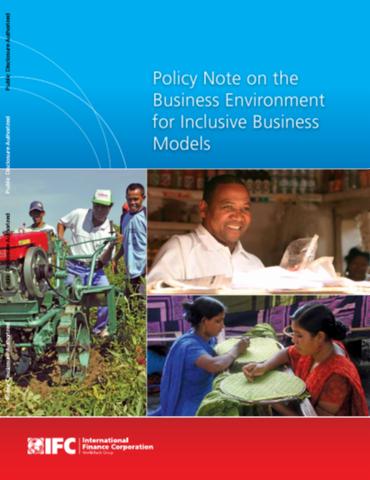Resource information
This policy note has two goals. First, to assess whether inclusive business models face specific regulatory hurdles. Second, to recommend policies that creates a business environment conducive to inclusive business. Little research has been conducted on the first goal. This note analyzes survey answers from companies that applied to the G20 Challenge. These companies were asked to rank regulatory obstacles and explain whether these obstacles created significant hurdles to their ability to serve the base of the pyramid. On the second goal, this note highlights policy recommendations for governments, development finance institutions and donors. It also includes policy measures specific to countries and contexts. Some policy measures address regulatory hurdles for inclusive business models. Others support inclusive business models by providing incentives when needed. The first section analyzes survey answers from the 167 applicants for the G20 Challenge. The starting point was to listen to businesses a logical place to begin when seeking to improve the business environment. The second section describes policy measures for business models that include the base of the pyramid as producers or suppliers, focusing on agriculture. Businesses that source from small farmers have inclusive business models because they integrate farmers in their value chains. Small farmers are often considered base of the pyramid if their income is low or they lack basic goods or services. The third section describes policy measures for business models that include the base of the pyramid as customers particularly models that provide affordable housing, health, education and basic financial services. In many countries basic services are still mainly provided by the public sector or recently privatized companies and more stringent regulations often apply. This section describes regulations and policies that affect inclusive business models in these sectors. The fourth section describes roles for governments, development finance institutions and donors in supporting inclusive business models. The business environment is important because companies that do business with the base of the pyramid need to understand new markets, understand the market behavior of base of the pyramid customers, appraise new risks and develop new systems, business processes and training. Companies with inclusive business models also face perceptions from investors and lending institutions that the base of the pyramid is riskier than other markets.


